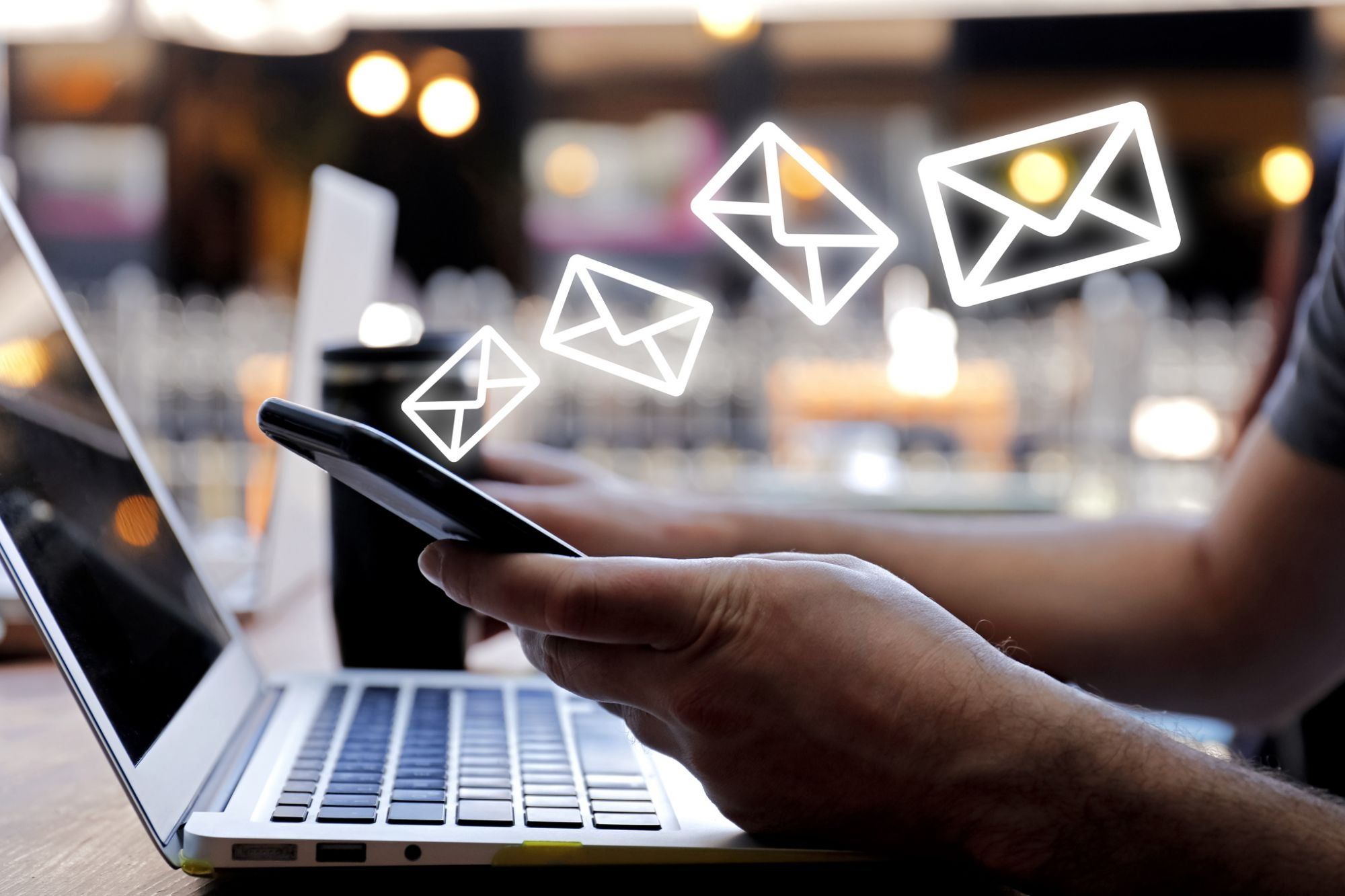Level Up Your Email Marketing with AI
by Danyal Jawed on Jul 31st, 2023

Email marketing has been a cornerstone of digital marketing strategies for decades. With its ability to deliver targeted messages directly to a receptive audience, it remains one of the most effective marketing channels. However, as consumer expectations evolve and competition intensifies, marketers face the challenge of delivering more personalized and engaging content to stand out in cluttered inboxes. In this context, the integration of generative artificial intelligence (AI) into email marketing emerges as a groundbreaking solution. Generative AI empowers marketers to create dynamic and adaptive email content that adjusts in real-time based on user behavior and preferences. This article delves into the future of email marketing, exploring how generative AI enhances personalization and transforms the effectiveness of email campaigns.
Direct and Personal Reach
Email marketing provides businesses with a direct line of communication to their audience. Unlike other advertising channels that rely on intermediaries or algorithms, emails land directly in the recipient's inbox, creating a personal and intimate connection. This direct reach allows brands to engage with their customers on a one-on-one level, irrespective of their geographical location or time zone.
One crucial aspect that distinguishes email marketing from intrusive spam is an emphasis on permission-based marketing. By obtaining explicit consent through opt-in lists, brands ensure that they are communicating with individuals who are genuinely interested in their products or services. This approach builds trust and fosters strong customer relationships, as recipients are more receptive when they maintain control over the emails they receive.
Cost-Effectiveness and ROI
Email marketing shines when it comes to cost-effectiveness. Compared to traditional advertising channels like print media or advertisements, email campaigns require minimal production costs and distribution expenses. With the ability to send thousands of emails with just a few clicks, businesses can achieve significant cost savings while reaching a broad and targeted audience.
The impact of email marketing on a brand's bottom line is impressive, with a remarkable return on investment (ROI) for well-executed campaigns. Statistics and case studies consistently reveal that businesses can generate substantial revenue from email marketing efforts. The ability to track user interactions and analyze campaign performance further enhances the effectiveness of email marketing, allowing marketers to optimize their strategies for even better results.
Targeting and Segmentation
One of the most significant advantages of email marketing lies in its ability to precisely target and segment the audience. By leveraging user data, demographics, interests, and past behavior, marketers can tailor their email content to resonate with specific groups of recipients. This segmentation ensures that subscribers receive content that aligns with their preferences and needs, increasing the likelihood of engagement and conversions.
Targeted emails have proven to be more effective than generic mass emails. When customers receive content that feels personalized and relevant to their interests, they are more inclined to open, click-through, and take action. This leads to higher open rates, click-through rates, and ultimately, a greater return on marketing investment.
As businesses continue to embrace data-driven approaches, email marketing's ability to target and segment audiences will remain a powerful tool for delivering impactful messages that connect with customers on a deeper level.
Rising Consumer Expectations
Consumers have become accustomed to being bombarded with automated outreach and advertising. In this era of information overload, consumers' attention spans have shortened, leading to what is often referred to as the "attention economy." In this economy, marketers are competing for their audience's limited attention, making it vital to create compelling and attention-grabbing email content.
Brands are now forced to work to understand their unique preferences and cater to their individual needs in order to ensure any interest or attention. This shift in consumer behavior has significantly influenced the effectiveness of marketing strategies, especially in the realm of email marketing.
Addressing the rising consumer expectations, email marketing must evolve from generic, mass-sent messages to personalized and relevant content. Customers seek emails that resonate with their interests, align with their purchase history, and provide value that goes beyond simple promotions or updates. Emails that address their pain points, offer solutions, and anticipate their needs are more likely to capture their attention and drive meaningful engagement.
The impact of sending generic, one-size-fits-all email campaigns can be detrimental to a brand's reputation and customer retention. When recipients receive content that does not match their interests or needs, it can lead to disengagement, increased email fatigue, and ultimately, unsubscribes. In the worst-case scenario, it may even prompt recipients to mark the emails as spam, harming the sender's deliverability rates and sender reputation.
To maintain a competitive edge in the evolving landscape of email marketing, brands must invest in understanding their customers on a deeper level. This involves analyzing customer data, studying behavioral patterns, and implementing segmentation strategies to deliver tailored content that speaks directly to each subscriber's preferences and expectations.
Personalization through Generative AI

Generative AI, with its ability to create content that mimics human language and creativity, is at the forefront of transforming email marketing into a highly personalized and dynamic experience. By harnessing the power of generative AI, marketers can take personalization to new heights, tailoring email content in real-time based on individual user behavior and preferences.
Generative AI allows marketers to automate the process of personalization, solving these issues for marketers. The magic of automated personalization lies in the seamless integration of recipient-specific details into each email. With just a few clicks, the AI can dynamically insert the recipient's name, location, past interactions, and even personalized product recommendations, making the message highly relevant and compelling
Starting from the subject line to the body of the email. With access to vast amounts of user data, including browsing history, past interactions, and purchase behavior, AI algorithms can create hyper-relevant and personalized email content for each recipient.
The impact is striking. Email open rates soar as recipients are greeted with content that speaks directly to their needs and interests. Click-through rates rise as the AI serves precisely what each subscriber is looking for. As a result, conversions increase, customer engagement deepens, and brand loyalty flourishes.
Platforms like apollo.io offer a specific tool that streamlines the personalization process, making the content feel more relevant and tailored to each customer. A great starting place is lowtech.ai, where marketers can leverage the intuitive front, using prompts like this one allowing users to input their email marketing preferences and achieve customizability for free.
With this innovative tool, marketers can quickly draft well-written and compelling email content that resonates with their target audience. By inputting the focus of their email marketing campaign and any relevant details, the generative AI generates a personalized email draft that seamlessly integrates recipient-specific information.
Growing Possibilities
Generative AI opens up new possibilities for personalization in email marketing, enabling marketers to craft dynamic and adaptive email content that aligns with individual preferences and behavior. Beyond automated personalization, functionalities like behavioral triggers, real-time adaptation, and contextual content are opportunities for AI to improve outreach. As seen in the case of emails, older techniques are losing efficacy. The possibilities are growing and it is important for marketers to seek out these advancements and not get left behind.